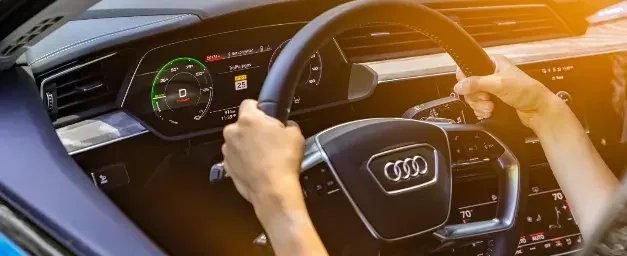Question: My car has been acting weird lately. I’ll be driving normally and the RPM will be all over the place—even though I’m not changing anything! Why does my RPM go up and down while driving?
Answer: If your tachometer is going all over the place when you drive, then you might have a problem, especially if the fluctuations are large. There are some situations where RPMs changing is normal, though, so make sure it isn’t the result of these:
- When your air conditioning unit activates, you’ll see a drop in RPMs because the AC draws power from your engine
- Unless you have a CVT transmission, regular automatics will shift into different gears, causing a noticeable change in RPMs as you drive.
However, if your RPMs are fluctuating without any change in your behavior or for some unexplained reason, then you might have a faulty part somewhere. The easiest way is to categorize them into three broad categories to start your troubleshooting.
Combustion-related problems
For stable RPMs to occur, you need to have a reliable and clean combustion cycle. There are some things that can disrupt this that center around fuel and air delivery, plus ignition from the spark plugs.
Air delivery problems
Your engine requires a specific amount of air delivered to the combustion chamber proportional to the fuel it’s receiving. Vacuum leaks could introduce unwanted air that throws this proportion out of balance, just as a clogged air filter would restrict the amount of air going to the combustion chamber.
Fuel delivery problems
Fuel pumps, injectors and other parts of the fuel delivery system can get clogged or fail over time, leading to an inconsistency in fuel delivery.
Faulty spark plugs
Oxygen, gasoline and a spark causes combustion, and the final element could be the problem if you are getting unstable RPMs. Spark plugs have to be replaced regularly, and if there are other problems in your engine, it could require you to change your spark plugs earlier.
Faulty sensors
Fuel and air are both needed for the system to run efficiently, and there are sensors for both that make the determination of how much to supply. A critical component is the mass airflow sensor which determines how much air should be delivered to the engine based on ambient conditions.
Another sensor that is crucial is the throttle pedal position sensor. This determines how much throttle you’re giving it engine, then tells the fuel delivery system how much fuel to use. A faulty sensor could be exaggerating or underestimating your throttle requirements, leading to RPM instability.
Transmission Issues
If you’re in a stick shift and you step on the gas, clutch engaged, and your RPMs jump but you don’t get much increase in speed, then you probably have a worn clutch.
In an automatic, a slipping gearbox can also result in this symptom. However, in an automatic gearbox, you should first pay attention to whether you have a transmission leak. Without adequate transmission fluid, your RPMs might go up without the expected jump in acceleration.

Xuyun Zeng is a writer and editor with a wide-ranging content background including tech, journalism, cars and health care. After graduating with highest honors in journalism, Xuyun led a newspaper to win eight awards, helped start an award-winning film industry podcast and has written over a hundred articles about cars repair, state laws and insurance. Prior to joining Jerry, Xuyun worked as a freelance SEO consultant with a mission to create the best content that will help readers and grow organic traffic.

Chris Burkhardt is a writer and editor with over a decade of experience across various storytelling mediums. With Jerry, Chris hopes to help anyone with a question about their vehicle easily find the answers they are looking for. Whether you need to know how much insurance costs for a classic car, how to replace a broken light or tell if you need an oil change, Chris wants to help you find solutions the best he can. Prior to joining Jerry, Chris was a digital content producer and writer for NBC and a freelance editor for NerdWallet. A graduate of the University of Oregon’s School of Journalism and Communication, if Chris is not working on content, he’s sure to be found cheering on his Ducks!








